Queen of Dragons d-3 Read online
Page 2
"Petitions," she said.
"We're almost ready to begin."
"I'll be down. One half hour."
"I'll tell them."
He turned away at once. She did not wait for him to reach the door, the footmen she knew would be stationed just inside. She couldn't walk in like this, and in any case, she didn't want to see their faces. She certainly didn't want them to see hers.
Maricara Turned to smoke.
It was a rush of sensation, an instant lightness that required neither breath nor thought. All human flesh was gone, all sense of cold or pain; all that came instead was lovely and silken. She'd had this Gift since the age of eight, the youngest of any of the drakon she knew—although it had taken a full year after that for her dragon form to emerge...claws and wings and velocity, the violence of the wind tearing at her eyes...
But this morning she was smoke, because smoke could roll down the side of the castle walls, smoke could skim the rough, familiar stone—like rubbing her hand over sandpaper, only without body, without weight. As smoke she could move any direction she wished, down farther, diagonal to the rampart, entangling briefly with the remains of a seated granite griffin, carved by some long-ago ancestor.down another level, and then she was at her own window, at the hairline crack in the glass she had made years ago, back when she had been imprisoned here.
It took time to sift through the break in the glass. It had been the greatest danger of discovery, the minute and seventeen seconds she needed to force herself through the fissure. But she'd never dared to make it larger, and then later, when it no longer mattered, she simply hadn't bothered. It would only be another breach in her defenses, anyway.
She became a gray well upon the sill, a plumy waterfall to the floor. When she was fully inside the room, she Turned back into woman, nude again, suppressing a shiver.
The drakon were unable to transform anything else in the Turn, not gemstones or weapons or food, certainly not clothing. Out of habit she remained motionless and in shadow, allowing her physical senses to surge back—her heart pumping to life, the scent of wood polish and hot coffee suddenly sharp in her nose—but her skin prickled against the fresh chill.
She heard the wind groaning through the vent of the chimney and the slow tick of the Belgian clock upon the secretaire.
And breathing. And petticoats very lightly brushing stone.
Mari turned her face. From the doorway her maids took her cue, stirring and then coming forward, carrying garments and cosmetics and jewelry.
The private quarters of the princess were lavish and golden, a true reflection of the wealth of the castle. The bed was cherry and damask, the sheets were satin. She had rugs of peacock colors from exotic lands she had never seen, Turkish cabinetry and hardwood paneling from the darkest forests of black Russia. She had mother-of-pearl inlay and beeswax candles and that coffee languorously steaming in a service of solid gold by the fire. She had all these things, and always had, from the moment she'd first stepped foot here as a child, and the only aspect of this rich and blinding room that Maricara had ever troubled herself to change was the wallpaper. Or, more specifically, the wall.
Along the southern side of the room she had stripped the dyed silk from the wood, and then the wood from the stone. There were no windows there, no paintings or anything else to distract from the bare quartzite that composed the foundation of Zaharen Yce. It was a fine stone, solid and largely silent, which was good. Because tucked in the mortar between the ancient blocks were ancient diamonds, hundreds of them, and Maricara needed to hear them sing.
Cool and plain, colored and clear, they studded the wall in frosted bumps, every one of them uncut, every one a brilliant poem. If she ran her fingers over them, they would hum up her arm, into her heart, filling her ears and her throat and her blood with song. There had been times when their music had been her sole solace in the world.
She focused on that now, on their soft constant singing, as she bit her lip and cleansed the wound on her stomach with soap and cold water.
"No corset," she said without looking up, and one of the maids drifted back into the recesses of the room.
The blood washed off. The cut would heal. In time, she knew, everything healed.
The princess handed off the stained towel and basin to take her seat at the vanity. The looking glass showed the bed behind her tinted silver, the covers neat, no sign whatsoever that she ever once slept in it.
Like she didn't even exist.
With her hands folded in her lap, Maricara allowed her servants to begin her transformation.
No one spoke as she entered the chamber. They'd hardly been speaking before, just occasional mutters and whispers behind hands, but it seemed to Alexandru that the level of excitement seething through the serfs before him had been slightly higher than usual for this day.
Perhaps not. The room was round. Voices echoed. That could be all it was.
He'd been passing the time by putting on his spectacles and acting like he was examining the documents laid out before him, petitions written for him by his chamberlain, prepared in the order in which he would see each man. But it was all scratches and nibbles to him, tiny grievances blown into feuds: this field, that field, his hog, my acorns.
Sandu was fifteen years old. Breakfast had been hours ago. He was hungry, and he was chilled, and she was late, and he honestly didn't care about anyone's damned acorns.
The letters began to blur against the parchment. He pushed his spectacles back up his nose but it didn't help; the black ink ran to blue, the colors shifting, the words changing.. .they said something new now, something he could almost make out..
Pay attention, rang his sister's voice inside his head. You are Alpha. Every man's concern here is your own.
He blinked, and everything righted again. Sandu sighed and rubbed his nose. He wished, for what had to be the thousandth time, that the Convergence Room had a fireplace. It was mid-April but the Carpathians were still gripped with snow, and his court stockings were not woven for warmth.
The double doors opposite his table swung wide. Maricara entered the chamber, and that was when the air actually froze.
She was beautiful. No one would deny that. All their kind had a beauty, but in Mari it had grown into something beyond even them. She wore rouge and kohl, and a wig of long, heavy slate coils, and the violet of her gown lent purple to her eyes, but Sandu thought all these things really only served to distract from her true nature. It wasn't the whiteness of her skin that set her apart, or the lift of her shoulders, or the shape of her jaw. It wasn't her fashion or her figure, or her gliding walk. It wasn't anything so clear and physical. She was beautiful because she simply was: Of all the women of the mountains, she was the only one who could Turn.
It was why she had been chosen as princess. And it was why every person here, drakon and human alike, gazed at her with a seed of fear in their hearts. Sandu had realized that long ago.
It was possible they had good reason to fear her. He wasn't certain; he hoped not. This fey and otherworldly creature was his sister, and he loved her. But even Sandu had to admit he didn't fathom the depths of her.
The Convergence Room had windows filled with sky on every side, flooding the chamber with light. It was tall and vast, nearly four open floors of an entire tower, with marble pillars and tiles, and a ceiling carefully frescoed with stars and the moon and silvery, blazing beasts. For all its strength and solid luster, this was one of the few rooms in Zaharen Yce that was created very obviously for something other than humans. When Maricara took her first step into the morning sunlight she blazed as well, brighter and more brilliant than even the painted dragons above. Her skin and hair and colors abruptly ceased to matter; she was only planes and angles, and power simmering beneath.
Alexandru felt a brief flash of gloom. No one feared him. They listened to him because they had to. He could Turn, but so could a score of other men here. He was called prince strictly because of her, because by their nature
a female could not rule, no matter how potent she was.
She moved through the rows of waiting people without glancing left or right. Her pale, cool eyes held the same faintly distracted cast it seemed she always had of late; Sandu wondered if his own looked the same. She didn't appear tired, although he knew she was. She didn't look like someone who had been missing the entire night although he was fairly certain that was true, too.
He stood, and when she was close enough, he bowed. It was a good bow, a French bow, and he knew she'd be pleased.
He rose from it just as she was completing her curtsy. He held her chair for her—to the left of his, slightly behind—and she accepted it, settling in with a gentle crinkling of skirts.
There was a tradition to this, a formality he'd had drummed into him these past eight years that was as old as the mountains, as the castle itself. This was the sole day they mingled, the drakon and those who served them. As a child he had once accompanied his father here to this wide, marbled cavern. He remembered just where they had sat, wrapped in their homespun: far in the back, and the prince seated in this chair had seemed as hard and cheerless as winter rime.
It had been cold then, too.
The chamberlain—human—stepped forward.
"Your Royal Graces."
Sandu turned to the first page of his documents. The petitioners were seated in strict order, from eldest to youngest. Another rule, another tradition.
He squinted at the parchment, and repressed another sigh. This was the one with the hog—
But the chamberlain at his shoulder bobbed and slipped a fresh sheet in front of him, something that had never happened before. Sandu accepted it, surprised, and dropped his gaze to the writing.
LIVEZILE:
Twelve sheep.
Two goats, one wool, one milk.
SALVA:
Twenty-four chickens, twenty laying.
Four piglets, one sow.
Shepherd hut.
DEDA:
Two sheep.
Church belfry.
Sandu kept his face blank. He looked up, not at his sister, but at the hushed mass of people in front of them. With an unpleasant sense of awakening, he realized how many Others there were here, crowded into this room. He understood their agitation now, the whispers. He smelled their excitement in dried sweat and wool.
The events of that night eight years before remained seared in his memory like a brand. The aroma of tar and burnt pine. The angry buzz of distant voices. He'd been awake because his parents had been awake, because the light from the serfs' torches had lit a patch of orange against the clouds and the castle, visible miles distant. Because the village had emptied of people, one by one, by foot or by horse, as everyone ascended the mountain to witness what had occurred: Prince Imre, the last of the pure-blooded drakon, was dead.
His young bride was not.
Sandu had been seven, and Maricara but eleven. His parents had latched the door to his room and refused to let him leave it. In the murk of the early morning Mari had come to him anyway, easily slipping through the shrunken slats of the roof, and materialized beside his bed.
He's gone. I've chosen you to rule.
And in his sleepy stupor, all Sandu had managed was: What?
I've chosen you, she'd repeated, patient. Come up to the castle. Come up at dawn. And he had. It had been the last night he'd spent in the village.
He hadn't known how the prince had died. He hadn't known anything at all. But when he'd finally made it up the mountain, he saw the blood fear in the eyes of the other peasants, the fallen torches extinguished in greasy puddles around the castle courtyard. He saw Maricara, thin and brave, put out her hand and quell the uprising that wanted to come. The Alpha of the drakon was dead, and all that was left of his reign was a slip of a girl whose sole grasp on authority was dragon teeth and scales and little else.
She'd had that hand out ever since, he thought. And because she was who she was—what she was—she'd managed it. Barely.
Sandu stared again at the paper. He hadn't known about the belfry. Sheep and pigs could be replaced, or at least paid for. A belfry would mean a priest. A priest could bring in an outsider, a whole contingent of them.
From the corner of his eye, he saw Maricara lean forward, and adjusted the paper so she could view it better. Perfumed with powder, garbed in silk, she seemed every bit an aristocrat; her breathing remained steady as she took in the contents. She turned her head a fraction and the rubies at her throat released a knot of fiery sparks.
"Your Graces." The chamberlain bowed once more, touching the curve of his fingers to his forehead. "Your most gracious pardons. A list has been compiled of a few recent losses from the villages. Nothing so very serious, as you see, however."
"Yes," said Sandu, finding his tongue. "Yes," he said again, and cleared his throat. "Most lamentable. Our people will not be allowed to suffer, no matter the cause. Compensation will be made."
Another bow from his servant. Mari remained taut in her chair. A farmer from the middle of the crowd climbed to his feet.
"Noble One," said the man, not quite inclining his head. "Forgive me. We wish to know how the losses will be stopped."
"Stopped?"
"It was my prize sow. Four fine piglets. Sucklings. How will this be stopped?"
Now, despite himself, Sandu glanced at his sister. She gazed back at him without expression. This close her eyes shone mirror clear, nearly colorless. He could see nothing at all in them.
"We do not know how, precisely, these creatures are being lost," he said at last, very slow. "We do not know the manner of their deaths, or how these structures came to be damaged. We know wolves have been sighted—"
"Destroyed," interrupted a new man, also standing. This one was paler, leaner; Sandu could sense a dim pulse of drakon in his blood. "The belfry was destroyed, my lord, from the inside, as if by a very great beast. Not a wolf."
"My sheep," began another serf, his voice throbbing. "My ewe, devoured—"
"None of us would do such a thing," Sandu said. "You know that. We would not."
No one contradicted him. They would not dare. Not here, and not yet. But it seemed every face before him turned to her, to the young woman seated at his side. The sunlight filling the room burned very bright.
She stood. Without touching him, without looking at him, without speaking or acknowledging anyone else in the chamber, Maricara walked carefully around the table, back down the center of the people. Her skirts trailed purple. Her footsteps struck lightly against the marble floor.
The footmen opened the double doors for her, shut them again after she had passed through.
"Compensation will be made," Prince Alexandru said once more, into the vast and hungry silence.
When she was younger, and new to this place, Maricara used to enjoy pretending she was one of the olden drakon who had built the fortress of diamonds and might. She would hold out her arms and pace out the massive squares of the keep—also pretending she could still find them whenever she came to a rug—and whisper secret words to herself: Here we place the southwest stones, for our heat and security. Here we place the northern stones, to brave the worst winds. Here will go the middle stone, for heart, for completion....
And they had names, too: Bogdan, Ilie, Lacrimioara, Rada. Because all friends needed names.
The first time he caught her at it, Imre had asked what she was doing. She told him; she had no reason to lie—besides, lying to Prince Imre tended to lead to remarkably unpleasant consequences. So after that when he saw her counting he would only watch her with that small, condescending smile he had. Stones were no threat to him, to his dominion over her. Or so he had thought.
Maricara knew every inch of this castle. She knew precisely how many steps it would take to reach her private drawing room from the doors of the Convergence Room, and how many more past that to reach the bower window that overlooked the courtyard, and the fountain of alabaster fish.
"Breakfast,"
she said to the hallboy who had followed her in, and took her seat upon the cushions. She waited until he was gone to look down at her hands.
They weren't shaking. Hardly, she corrected herself. They were hardly shaking.
She fisted them together in her lap.
Sheep. Sucklings. She closed her eyes and forced down the small, strange noise that wanted to rise from the back of her throat.
As if she were naught but an animal herself, as if she were little more than some base, marauding creature that savaged belfries and squealing pigs in the dark—
She exhaled, very slowly. She stared down at the beds of her fingernails pressing white and concentrated on remembering the details of last night. The ruffles on her nightgown. The heat of the bed brick. The smooth luxury of the sheets against her bare hands and feet, the pillow cool beneath her neck. The colors of the canopy in the last of the firelight, burnished bronze and rust, the chocolate satin cords lashing it to the posts.
And after that, nothing. She had fallen asleep. She had awoken atop the tower this morning. Just as she had nearly every night for the past six months.
When the first signs of her Gifts began to manifest, her parents had been terrified. No one knew how true the bloodlines of the drakon ran through the mountainfolk any longer. They were all descendants of mixed blood these days, all except Imre. Neither of her parents could Turn. Her grandfathers had been able, a few great-uncles, many years past. But for a woman to have this power, for a female child to balk at boiled cabbage for supper one night and transform into smoke rather than taking a bite—

 The Second Mrs. Astor
The Second Mrs. Astor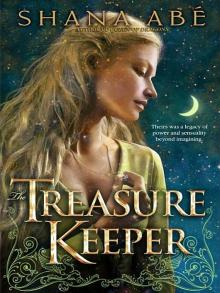 The Treasure Keeper
The Treasure Keeper The Deepest Night
The Deepest Night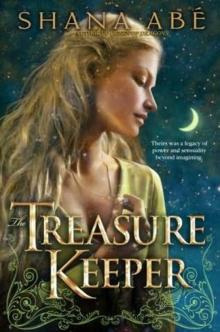 The Treasure Keeper d-4
The Treasure Keeper d-4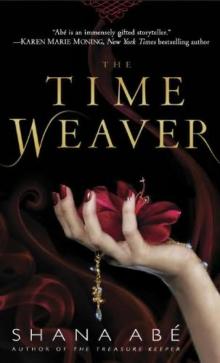 The Time Weaver d-5
The Time Weaver d-5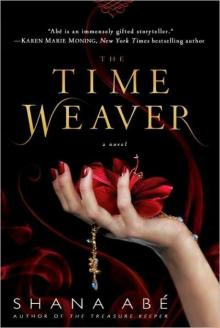 The Time Weaver
The Time Weaver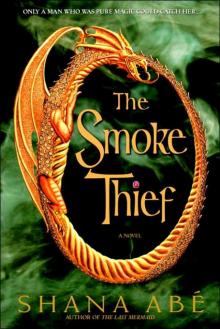 The Smoke Thief
The Smoke Thief The Sweetest Dark
The Sweetest Dark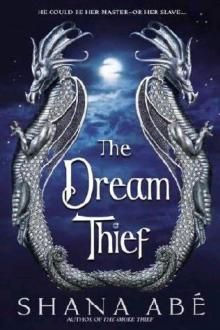 The Dream Thief
The Dream Thief The Deepest Night tsd-2
The Deepest Night tsd-2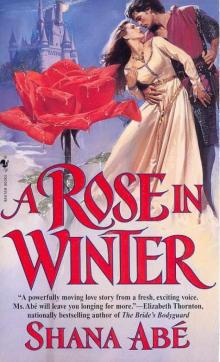 A Rose in Winter
A Rose in Winter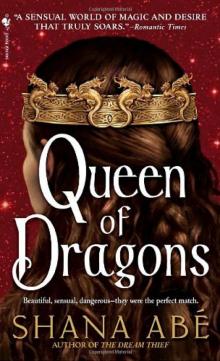 Queen of Dragons d-3
Queen of Dragons d-3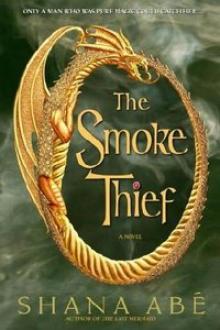 The Smoke Thief d-1
The Smoke Thief d-1